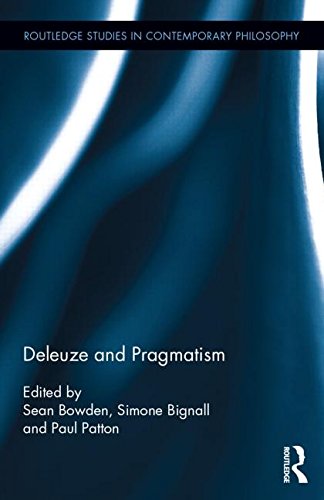

Most ebook files are in PDF format, so you can easily read them using various software such as Foxit Reader or directly on the Google Chrome browser.
Some ebook files are released by publishers in other formats such as .awz, .mobi, .epub, .fb2, etc. You may need to install specific software to read these formats on mobile/PC, such as Calibre.
Please read the tutorial at this link: https://ebookbell.com/faq
We offer FREE conversion to the popular formats you request; however, this may take some time. Therefore, right after payment, please email us, and we will try to provide the service as quickly as possible.
For some exceptional file formats or broken links (if any), please refrain from opening any disputes. Instead, email us first, and we will try to assist within a maximum of 6 hours.
EbookBell Team

4.3
28 reviewsThis collection brings together the philosophy of Gilles Deleuze and the rich tradition of American pragmatist thought, taking seriously the commitment to pluralism at the heart of both. Contributors explore in novel ways Deleuze’s explicit references to pragmatism, and examine the philosophical significance of a number of points at which Deleuze’s philosophy converges with, or diverges from, the work of leading pragmatists. The papers of the first part of the volume take as their focus Deleuze’s philosophical relationship to classical pragmatism and the work of Peirce, James and Dewey. Particular areas of focus include theories of signs, metaphysics, perspectivism, experience, the transcendental and democracy. The papers comprising the second half of the volume are concerned with developing critical encounters between Deleuze’s work and the work of contemporary pragmatists such as Rorty, Brandom, Price, Shusterman and others. Issues addressed include antirepresentationalism, constructivism, politics, objectivity, naturalism, affect, human finitude and the nature and value of philosophy itself. With contributions by internationally recognized specialists in both poststructuralist and pragmatist thought, the collection is certain to enrich Deleuze scholarship, enliven discussion in pragmatist circles, and contribute in significant ways to contemporary philosophical debate.